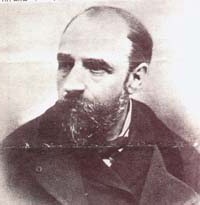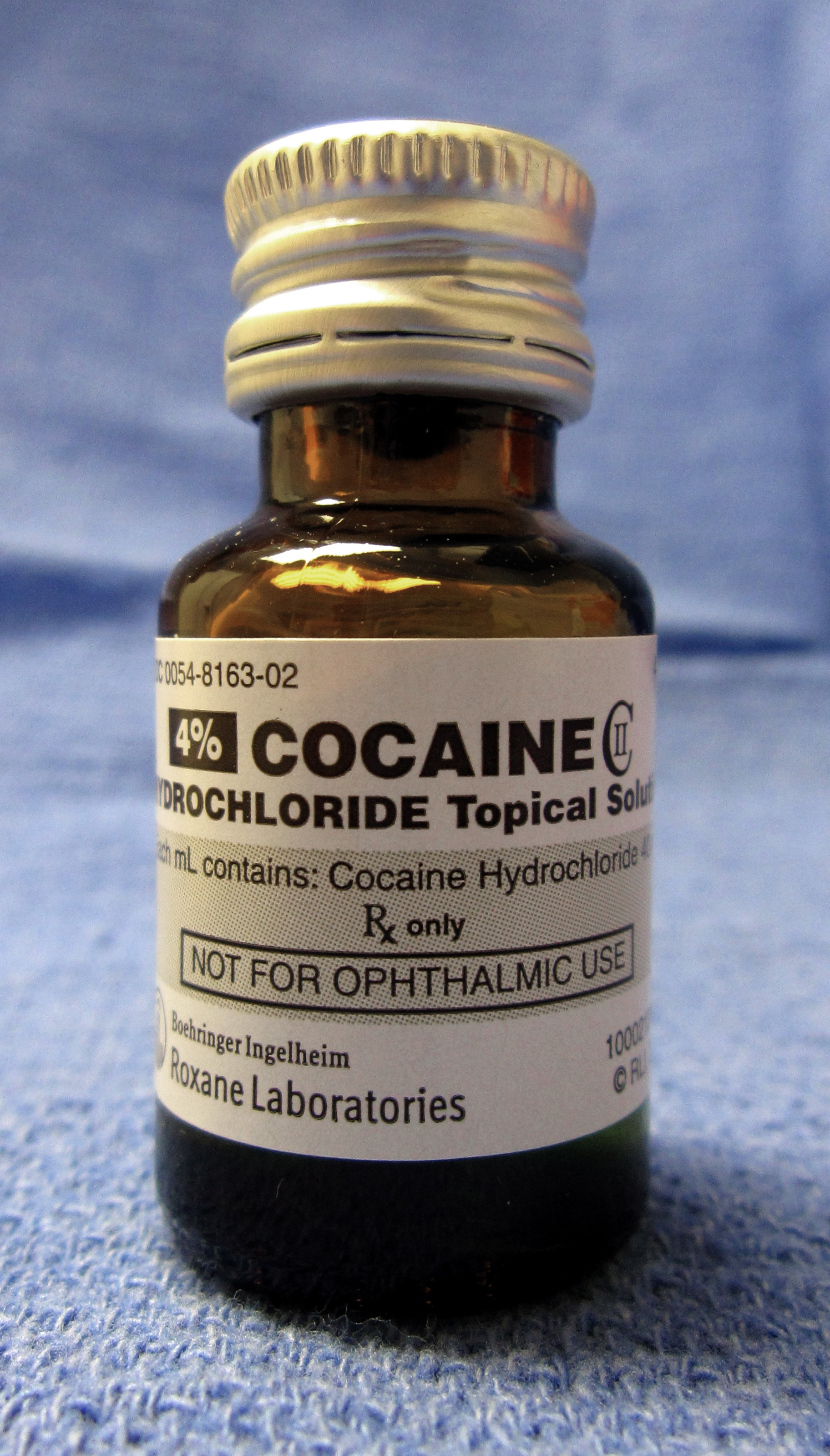|
Valentin Magnan
Valentin Magnan (16 March 1835 – 27 September 1916) was a French psychiatrist active in the 19th-century. Biography Valentin Magnan was a native of Perpignan. He studied medicine in Lyon and Paris, where he was a student of Jules Baillarger (1809–1890) and Jean-Pierre Falret (1794–1870). From 1867 to the end of his career he was associated with the Hôpital Sainte-Anne in Paris. At Sainte-Anne, he was a long-time colleague to Gustave Bouchereau (1835–1900). Magnan was an influential figure in French psychiatry in the latter half of the 19th century. He is remembered for expanding the concept of degeneration that was first introduced into psychiatry by Bénédict Augustin Morel (1809–1873). Magnan's theory of degeneration was a form of "evolutionary biology" that was based on an hereditary precept. He used terms such as ''bouffée délirante'' (transitory delusional psychosis) and ''délire chronique évolution systématique'' (chronic systemized delusional disor ... [...More Info...] [...Related Items...] OR: [Wikipedia] [Google] [Baidu] |
Absinth Wormwood
''Artemisia absinthium'' (wormwood, grand wormwood, absinthe, absinthium, absinthe wormwood, mugwort, wermout, wermud, wormit, wormod) is a species of '' Artemisia'', native to temperate regions of Eurasia and North Africa, and widely naturalized in Canada and the northern United States. It is grown as an ornamental plant and is used as an ingredient in the spirit absinthe and some other alcoholic beverages. Etymology ''Artemisia'' comes from Ancient Greek ἀρτεμισία, from Ἄρτεμις (Artemis). In Hellenistic culture, Artemis was a goddess of the hunt, and protector of the forest and children. The name ''absinthum'' comes from the Ancient Greek ἀψίνθιον, meaning the same. An alternative derivation is that the genus was named after Queen Artemisia, who was the wife and sister of Mausolus, ruler of Caria. The word "wormwood" may come from Middle English ''wormwode'' or ''wermode''. Webster's Third New International Dictionary attributes the etymology to Ol ... [...More Info...] [...Related Items...] OR: [Wikipedia] [Google] [Baidu] |
People From Perpignan
A person ( : people) is a being that has certain capacities or attributes such as reason, morality, consciousness or self-consciousness, and being a part of a culturally established form of social relations such as kinship, ownership of property, or legal responsibility. The defining features of personhood and, consequently, what makes a person count as a person, differ widely among cultures and contexts. In addition to the question of personhood, of what makes a being count as a person to begin with, there are further questions about personal identity and self: both about what makes any particular person that particular person instead of another, and about what makes a person at one time the same person as they were or will be at another time despite any intervening changes. The plural form "people" is often used to refer to an entire nation or ethnic group (as in "a people"), and this was the original meaning of the word; it subsequently acquired its use as a plural form of p ... [...More Info...] [...Related Items...] OR: [Wikipedia] [Google] [Baidu] |
1916 Deaths
Events Below, the events of the First World War have the "WWI" prefix. January * January 1 – The British Empire, British Royal Army Medical Corps carries out the first successful blood transfusion, using blood that had been stored and cooled. * January 9 – WWI: Gallipoli Campaign: The last British troops are evacuated from Gallipoli, as the Ottoman Empire prevails over a joint British and French operation to capture Constantinople. * January 10 – WWI: Erzurum Offensive: Russia defeats the Ottoman Empire. * January 12 – The Gilbert and Ellice Islands Colony, part of the British Empire, is established in present-day Tuvalu and Kiribati. * January 13 – WWI: Battle of Wadi (1916), Battle of Wadi: Ottoman Empire forces defeat the British, during the Mesopotamian campaign in modern-day Iraq. * January 29 – WWI: Paris is bombed by German Empire, German zeppelins. * January 31 – WWI: An attack is planned on Verdun, France. February * ... [...More Info...] [...Related Items...] OR: [Wikipedia] [Google] [Baidu] |
1835 Births
Events January–March * January 7 – anchors off the Chonos Archipelago on her second voyage, with Charles Darwin on board as naturalist. * January 8 – The United States public debt contracts to zero, for the only time in history. * January 24 – Malê Revolt: African slaves of Yoruba Muslim origin revolt in Salvador, Bahia. * January 26 – Queen Maria II of Portugal marries Auguste de Beauharnais, 2nd Duke of Leuchtenberg, in Lisbon; he dies only two months later. * January 26 – Saint Paul's in Macau largely destroyed by fire after a typhoon hits. * January 30 – An assassination is attempted against United States President Andrew Jackson in the United States Capitol (the first assassination attempt against a President of the United States). * February 1 – Slavery is abolished in Mauritius. * February 20 – 1835 Concepción earthquake: Concepción, Chile, is destroyed by an earthquake; the resulting tsunami destroys the neighboring city of Tal ... [...More Info...] [...Related Items...] OR: [Wikipedia] [Google] [Baidu] |
Cocaine
Cocaine (from , from , ultimately from Quechua: ''kúka'') is a central nervous system (CNS) stimulant mainly used recreationally for its euphoric effects. It is primarily obtained from the leaves of two Coca species native to South America, '' Erythroxylum coca'' and '' Erythroxylum novogranatense''. After extraction from coca leaves and further processing into cocaine hydrochloride (powdered cocaine), the drug is often snorted, applied topically to the mouth, or dissolved and injected into a vein. It can also then be turned into free base form (crack cocaine), in which it can be heated until sublimated and then the vapours can be inhaled. Cocaine stimulates the reward pathway in the brain. Mental effects may include an intense feeling of happiness, sexual arousal, loss of contact with reality, or agitation. Physical effects may include a fast heart rate, sweating, and dilated pupils. High doses can result in high blood pressure or high body temperature. ... [...More Info...] [...Related Items...] OR: [Wikipedia] [Google] [Baidu] |
Paresthesia
Paresthesia is an abnormal sensation of the skin (tingling, pricking, chilling, burning, numbness) with no apparent physical cause. Paresthesia may be transient or chronic, and may have any of dozens of possible underlying causes. Paresthesias are usually painless and can occur anywhere on the body, but most commonly occur in the arms and legs. The most familiar kind of paresthesia is the sensation known as "pins and needles" after having a limb "fall asleep". A less well-known and uncommon paresthesia is formication, the sensation of insects crawling on the skin. Causes Transient Paresthesias of the hands, feet, legs, and arms are common transient symptoms. The briefest electric shock type of paresthesia can be caused by tweaking the ulnar nerve near the elbow; this phenomenon is colloquially known as bumping one's "funny bone". Similar brief shocks can be experienced when any other nerve is tweaked (e.g. a pinched neck nerve may cause a brief shock-like paresthesia toward t ... [...More Info...] [...Related Items...] OR: [Wikipedia] [Google] [Baidu] |
Magnan's Sign
Magnan's sign is a clinical sign in which people with cocaine addiction experience paraesthesia which feels like a constantly moving foreign body, such as fine sand or powder, under the skin. at Mondofacto online medical dictionary The sign is named after Valentin Magnan
Valentin Magnan (16 March 1835 – 27 September 1916) was a French psychiatrist active in the 19th-century.
Biography
Valentin Magnan was a native of Perpignan. He studied medicine in Lyon and Paris, where he was a student of Jules Bailla ... .
External links *References [...More Info...] [...Related Items...] OR: [Wikipedia] [Google] [Baidu] |
Epileptiform
Epilepsy is a group of non-communicable neurological disorders characterized by recurrent epileptic seizures. Epileptic seizures can vary from brief and nearly undetectable periods to long periods of vigorous shaking due to abnormal electrical activity in the brain. These episodes can result in physical injuries, either directly such as broken bones or through causing accidents. In epilepsy, seizures tend to recur and may have no immediate underlying cause. Isolated seizures that are provoked by a specific cause such as poisoning are not deemed to represent epilepsy. People with epilepsy may be treated differently in various areas of the world and experience varying degrees of social stigma due to the alarming nature of their symptoms. The underlying mechanism of epileptic seizures is excessive and abnormal neuronal activity in the cortex of the brain which can be observed in the electroencephalogram (EEG) of an individual. The reason this occurs in most cases of epilepsy is ... [...More Info...] [...Related Items...] OR: [Wikipedia] [Google] [Baidu] |
Alcoholism
Alcoholism is, broadly, any drinking of alcohol that results in significant mental or physical health problems. Because there is disagreement on the definition of the word ''alcoholism'', it is not a recognized diagnostic entity. Predominant diagnostic classifications are alcohol use disorder ( DSM-5) or alcohol dependence ( ICD-11); these are defined in their respective sources. Excessive alcohol use can damage all organ systems, but it particularly affects the brain, heart, liver, pancreas and immune system. Alcoholism can result in mental illness, delirium tremens, Wernicke–Korsakoff syndrome, irregular heartbeat, an impaired immune response, liver cirrhosis and increased cancer risk. Drinking during pregnancy can result in fetal alcohol spectrum disorders. Women are generally more sensitive than men to the harmful effects of alcohol, primarily due to their smaller body weight, lower capacity to metabolize alcohol, and higher proportion of body fat. In a small n ... [...More Info...] [...Related Items...] OR: [Wikipedia] [Google] [Baidu] |
Delirium Tremens
Delirium tremens (DTs) is a rapid onset of confusion usually caused by withdrawal from alcohol. When it occurs, it is often three days into the withdrawal symptoms and lasts for two to three days. Physical effects may include shaking, shivering, irregular heart rate, and sweating. People may also hallucinate. Occasionally, a very high body temperature or seizures (colloquially known as "rum fits") may result in death. Alcohol is one of the most dangerous drugs to withdraw from. Delirium tremens typically only occurs in people with a high intake of alcohol for more than a month. A similar syndrome may occur with benzodiazepine and barbiturate withdrawal. Withdrawal from stimulants such as cocaine do not have major medical complications. In a person with delirium tremens it is important to rule out other associated problems such as electrolyte abnormalities, pancreatitis, and alcoholic hepatitis. Prevention is by treating withdrawal symptoms. If delirium tremens occur ... [...More Info...] [...Related Items...] OR: [Wikipedia] [Google] [Baidu] |
Paul Sérieux
Paul Sérieux (; 1864–1947) was a French psychiatrist who was a native of Paris. He practiced medicine in several French hospitals and asylums during his career, including the Asylum of Ville-Evrard and the hospital of Sainte-Anne. He also worked as a physician at the Asylum of Marsens in Switzerland. Sérieux is best known for research of psychoses and delusional thought processes, and his collaborative work with Joseph Capgras (1873–1950). With Capgras, he described a type of non-schizophrenic, paranoid psychosis called ''délire d’interprétation'', which is defined as a "chronic interpretive psychosis". Sérieux was also instrumental in introducing the theories of German psychiatrist Emil Kraepelin (1856–1926) into French psychiatry. With his one-time mentor Valentin Magnan Valentin Magnan (16 March 1835 – 27 September 1916) was a French psychiatrist active in the 19th-century. Biography Valentin Magnan was a native of Perpignan. He studied medicine in ... [...More Info...] [...Related Items...] OR: [Wikipedia] [Google] [Baidu] |

_1938.jpg)



